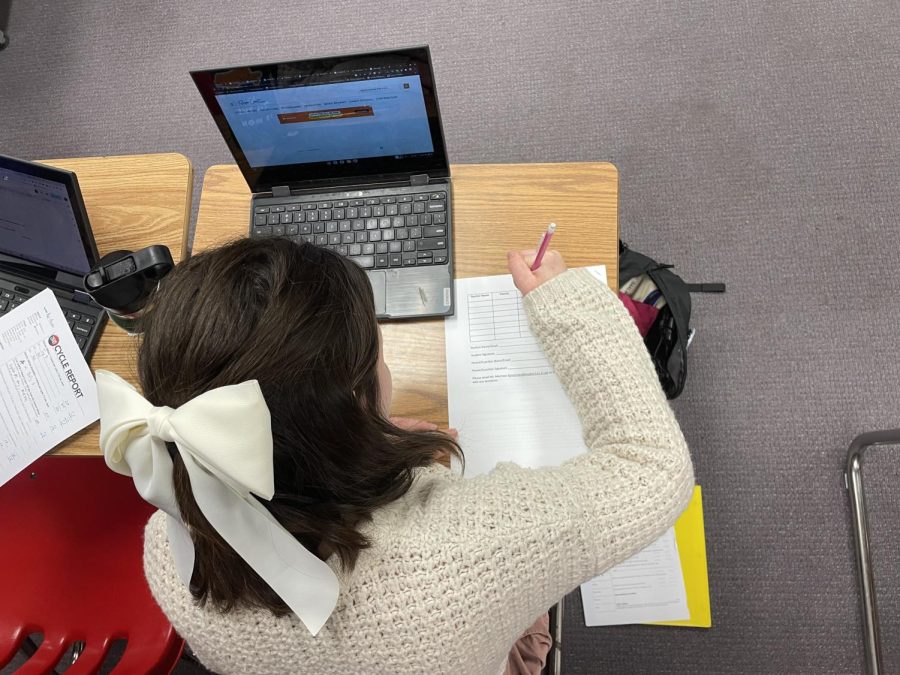A new procedure was recently implemented which removed the tardy room. Students are now allowed into class up to four minutes after the bell, rather than being sent straight to the tardy room as soon as the bell rings.
Students who arrive to class after the bell will still be counted tardy in Skyward, but are allowed to stay in class as normal. After four tardies, disciplinary action is taken.
If a student arrives to class more than four minutes late, they are sent to in-school intervention.
The main argument in favor of the new procedure is that students do not have to miss an entire class period if they are moments late to class. While this is a fair point, the complete removal of the tardy room is overkill.
Normal passing periods are six minutes, and passing periods between lunches are five minutes. The new four minute “grace period” is too long, as it nearly doubles the scheduled transition time.
It seems as though administration is settling for mediocrity.
First there was the implementation of the 50% grade floor, where students can simply turn in a blank assignment or assessment and receive 50% credit rather than their deserved zero.
Now, by adding the new tardy procedure, administration continues lowering the bar for what is considered acceptable.
The tardy room prevented disruptions from students who were late to class. It allowed teachers to start lessons as soon as possible without worrying about being interrupted by students walking in late. This is no longer a guarantee.
The new procedure also makes attendance more difficult for teachers. Teachers are no longer able to take attendance right at the beginning of class because there is a chance that more students will come in later on.
Teachers who do continue to take attendance at the beginning of class will have to go back and make edits if any students walk in after it is submitted. Not only will class be disrupted by a student coming in late, but by the teacher taking time to change their attendance as well.
Ultimately, the new procedure has greater potential to disrupt the flow of classes.
While this new implementation may benefit some, further watering down the expectations will not serve students in preparation for their futures.


